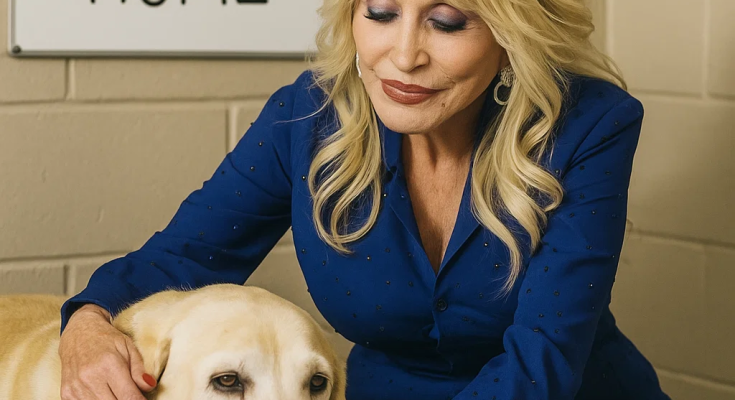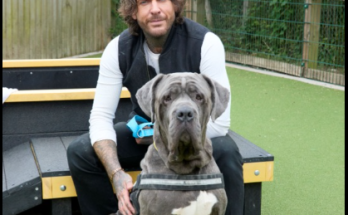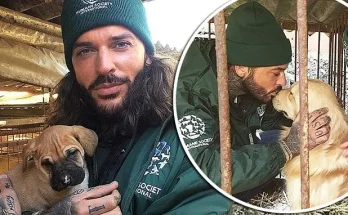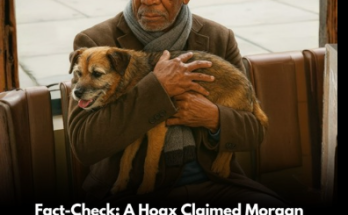A Heart of Gold: How Dolly Parton Saved 39 Souls in One Unforgettable Day
In a quiet corner of rural Tennessee, where the hills roll softly and time seems to move a little slower, a small rescue shelter was counting down its final hours.
The lights flickered. The food bins were nearly empty.
The bills — stacked high and unpaid — sat unopened on a dusty desk.
The shelter had just 48 hours left before it would close its doors forever, and with it, 39 dogs would lose their only home.
The owner, exhausted and defeated, had already accepted what was coming.
Hope, once bright as morning sunlight, had faded to gray.
But that was before a certain someone — a woman known for her sparkle, her songs, and her enormous heart — quietly stepped through the front door.
Dolly Parton had come to visit.
Just Dolly, in her rhinestone boots and denim jacket, with her hair piled high and her heart wide open.
The 78-year-old country legend walked softly through the rows of kennels, her eyes full of compassion as she took in the sight of dozens of dogs waiting — some barking, some trembling, some just lying still in silent surrender.
Toward the back, she stopped. There, in a worn-out bed, lay an old Labrador mix named Buddy.
Eleven years old, thin and tired, his fur dulled with age, Buddy had long been overlooked.
He didn’t even lift his head when she approached — maybe he’d stopped believing anyone would care.
But Dolly knelt down beside him. She reached out her hand and gently stroked his fur, her voice low and kind.
“Hey there, sweet boy,” she whispered. “You’re not alone anymore.”
For a moment, the room seemed to still. The old dog’s tail gave a weak thump against the floor.
And something shifted — not just in Buddy, but in everyone watching.
Dolly stood up, brushed the dust from her jeans, and turned to the shelter staff.
“How many dogs are here?” she asked.
“Thirty-nine,” came the quiet reply.
Her eyes softened, but her voice carried that unmistakable mix of tenderness and resolve — the same voice that’s sung the world to tears for decades.
“Well, sugar,” she said, “all 39 of you deserve a tomorrow.”
Those words, simple yet powerful, were a promise.
The next morning, that promise came to life.
Delivery trucks began to arrive, one after another, rumbling up the dirt road with their cargo: stacks of soft beds, shiny new bowls, boxes of food, medicine, cleaning supplies, and colorful toys.
Workers unloaded fresh flooring and repair materials. Veterinarians volunteered their time. Local contractors offered to help.
And on every kennel, a brand-new sign appeared — each handwritten in Dolly’s signature looping style:
“Forever Home — with love from Dolly Parton.”
For the first time in months, the shelter was alive with hope. The dogs barked, wagged, and jumped in excitement.
The staff wept.
The little rescue that was supposed to disappear had become a symbol of love, kindness, and second chances.
And Buddy?
Dolly didn’t leave without him. She filled out the adoption papers right there on the spot. When the staff asked if she was sure, she just smiled — that bright, genuine Dolly smile that could melt even the hardest heart.
“He’s been waiting long enough,” she said softly. “I reckon it’s time he came home with me.”
That day, Buddy left the shelter for the last time — not in fear or loneliness, but in the arms of a woman who believed that every creature, no matter how small or old, deserves a chance to be loved.
The story spread quietly at first — a few photos, a few whispers — but soon it took on a life of its own.
Across social media, fans around the world shared the tale, many saying they weren’t surprised at all.
After all, this was Dolly Parton — the woman who built libraries for children, funded COVID vaccines, and never forgot her Tennessee roots.
It was about something even deeper: compassion in its purest form.
In a world too often hardened by cynicism and greed, Dolly reminded us what real goodness looks like — not loud, not boastful, but steady and true.
She showed that heroism doesn’t always wear a cape; sometimes it wears rhinestones and carries a leash.
When asked later why she did it, Dolly’s answer was as humble as it was profound.
“Honey,” she said, “I just couldn’t stand the thought of them being forgotten. Everybody deserves love — people, dogs, all of God’s creatures. If you’ve got the means to help, you ought to.”
Today, the shelter that was once on the brink of closure is thriving.
Donations have poured in from across the country, inspired by Dolly’s gesture. New volunteers arrive every week.
Dozens of dogs have found forever homes. And above the entrance, painted in big, cheerful letters, hangs a new sign:
“Dolly’s Dream Rescue — where every tail has a tomorrow.”
As for Buddy, he now spends his days on Dolly’s Tennessee farm, lounging in the sun, chasing butterflies, and occasionally listening as she strums her guitar on the porch.
The once-forgotten dog has found peace — and maybe, in his own way, become a part of another Dolly song.
Because in the end, Dolly Parton didn’t just save a shelter.
She saved 39 little hearts — and reminded the rest of us that kindness, when shared, can light up the darkest places.
And somewhere, under the Tennessee sky, a happy old dog rests his head in her lap, knowing he is home at last.
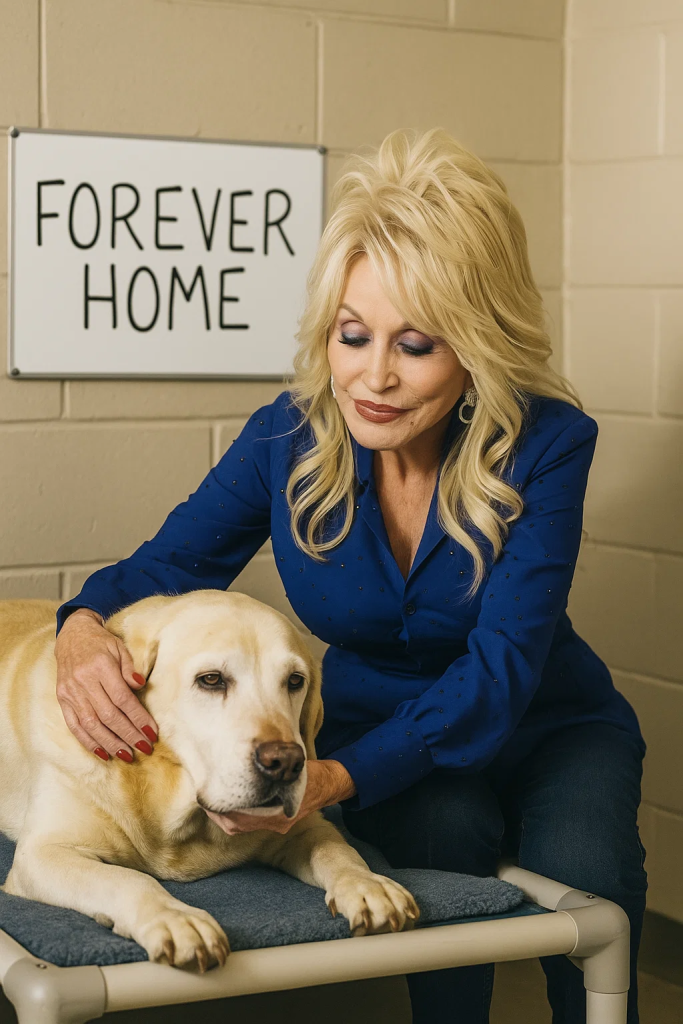

“The Weight of a Jersey: Ashton Jeanty’s Unforgettable Gift”
It was supposed to be just another Saturday game in Boise.
Blue skies, packed stands, and the roar of a thousand fans echoing through Albertsons Stadium.
But for one young boy sitting quietly in Section 12, Row C, this wasn’t just a football game.
It was the end of a long, hard fight — and a dream he thought he’d never get to see come true.
His name was Eli, a 10-year-old boy battling leukemia.
He loved football, especially Boise State.
And more than anyone, he loved watching his hero, Ashton Jeanty, tear through defenses with the kind of power and grace that made every play look like art in motion.
Eli’s doctors had told his parents he might not have much time left.
So, with help from a local charity, they brought him to the stadium — one final wish come true.
He wore Jeanty’s number on his back, a jersey that hung a little too big, and a smile that somehow fit perfectly.
As the game kicked off, Jeanty was, as always, unstoppable — breaking tackles, finding space, carrying the team on his shoulders.
But late in the second half, as the crowd chanted his name, Jeanty glanced toward the sideline and saw a small boy holding a handmade sign that read:
“You’re my hero, Ashton.”
Something in that moment changed.
After scoring a touchdown, Jeanty didn’t run to the end zone to celebrate.
Instead, he jogged straight to the stands, found Eli, and pulled off his jersey — the one he had just worn to score.
He climbed the railing, knelt down, and handed it to him.
“This one’s for you, little man,” he said, smiling.
“You’re the real fighter here.”
The crowd went silent.
Then, one by one, people began to stand.
Applause filled the stadium — not for the touchdown, but for the moment.
Even the opposing team clapped.
Eli held the jersey like it was made of gold.
Tears streamed down his mother’s face.
Jeanty gave him a hug, whispered something only Eli could hear, and then jogged back to the field.
After the game, reporters asked Jeanty why he did it.
His answer was simple:
“Football’s just a game. But people like him — they’re what it’s really about. If I can give a little bit of joy to someone who’s fighting that hard, then that’s worth more than any trophy.”
A week later, Eli’s family shared a photo online:
Eli asleep, wearing the same jersey, his small hands clutching the fabric as if holding onto hope itself.
The post went viral, touching hearts across the country.
Fans, players, and even rivals called it one of the most beautiful moments in sports that year.
When asked about it again, Jeanty just smiled and said,
“I don’t want credit. I just hope he knows how much he inspired me.”
Two weeks later, Eli passed away peacefully — still wearing Jeanty’s jersey.
At the next game, Boise State took the field with a new patch sewn onto their uniforms:
EJ10 — Eli’s initials and age.
Before kickoff, Jeanty looked up toward the sky and whispered,
“This one’s for you, buddy.”
And when he scored that day, he pointed heavenward.
No celebration, no dance — just a quiet salute to a boy who had reminded him, and everyone watching, that the greatest victories aren’t always measured in points.
The story of Ashton Jeanty and Eli didn’t end on that field — it lived on in the hearts of everyone who heard it.
Boise State fans began raising money for children’s cancer charities in Eli’s name.
Players from rival teams sent messages of support.
And in classrooms, churches, and locker rooms, people talked about what true strength looks like.
Because sometimes, it isn’t about how fast you run or how many touchdowns you score.
It’s about how you lift others when they’re too tired to stand.
Ashton Jeanty reminded the world that the weight of a jersey isn’t measured in fabric — it’s measured in heart.
And for one small boy who never stopped believing, that heart meant everything.
